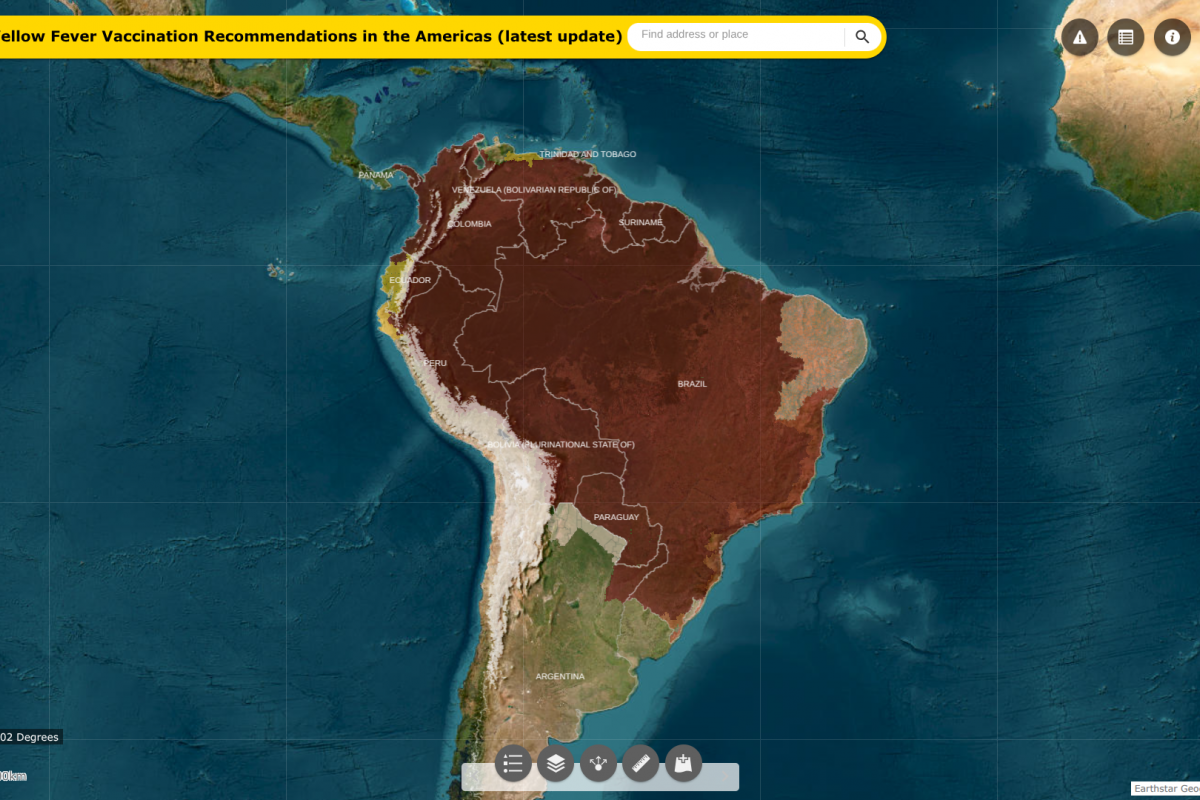At least 14 United States allied countries have changed travel advisories for their citizens since President Trump’s inauguration, cautioning travelers going to the U.S. about the entry process, gun violence and warning those in the LGBTQIA+ community of gender identity restrictions in travel documentation and more.
France, Ireland, Norway and Slovakia joined a growing list of U.S. allied countries updating their travel advisories for those looking to travel or stay in the United States on Monday. Many updates to travel advisories either came after executive orders from President Trump or following weeks-long detainments of Europeans by U.S. Immigration Customs Enforcement (ICE).
Many advisories issued are in regard to potential issues entering the country, whether it is with a visa, or through the visa waiver program. The visa waiver program allows citizens from participating countries in the program to enter the U.S. without a visa and stay for up to 90 days, but they must apply and obtain an approved Electronic System for Travel Authorization (ESTA) before boarding a U.S. bound air or sea carrier. People are granted an ESTA entry for business or tourism purposes.
The Kansan checked and translated travel guidelines and advisories from every country that is a member of the European Union, along with a handful of other nations that are closely allied to the United States. The full timeline, list of countries and countries’ respective advisories are listed below.
Jan. 31, 2025 – Spain
Spain was the first country to update its U.S. travel advisories following President Trump’s inauguration, and it was also the first to bring attention to stricter policies at the border.
“It should also be noted that arriving with an ESTA or visa does not guarantee entry into the U.S., as the decision is made on a case-by-case basis by CBP (Customs and Border Protection), which is also authorized to review travelers’ social media accounts when they cross the border into the country,” the advisory, translated from Spanish, reads.
Spain’s updated advisories followed a wave of executive orders from President Trump after his first day in office. This included executive order 14161, which President Trump implemented on his first day in office. The order was made to enhance vetting and make screening procedures more stringent for people applying for a visa in the states, which directly affects Spanish citizens entering the U.S.
Feb. 3, 2025 – Australia
On the same day that President Trump signed two new executive orders which would impose tariffs on both Mexico and Canada in an effort to enforce tighter border security on the Northern and Southern borders, Australia updated its travel advisories for those visiting or staying in the United States. Australia’s advisories caution travelers of the same entry and arrival mandates at the border as Spain, warning that entry is not guaranteed with a visa or approved ESTA. However, they also warn of potential discrimination in the states towards travelers in the LGBTQIA+ community.
“There’s no federal law that explicitly protects LGBTQIA+ people from discrimination. Some U.S. states and localities have laws that may affect LGBTQIA+ travellers,” the advisory reads.
Feb. 12, 2025 – Lithuania
Lithuania labels countries’ travel safety levels under five categories.
-
Level one: “no specific recommendations”
-
Level two: “precautions are recommended”
-
Level three: “assess the need to travel”
-
Level four: “it is recommended not to travel to this country”
-
Level five: “leave this country immediately.”
Lithuania raised the U.S. from level one to level two: “precautions are recommended” in February due to concerns for travelers’ safety, specifically due to mass shooting occurrences in the United States.
“We also recommend that you familiarize yourself with the advice prepared by the US Department of Homeland Security on what to do in the event of a shooting. The United States remains at an elevated risk of terrorist attacks. Attacks may target public gatherings, including tourist attractions, and transportation hubs,” the advisory, translated from Lithuanian, reads.
Feb. 13, 2025 – the Netherlands
While the U.S. is considered generally safe to travel to by the government of the Netherlands, the country updated advisories on its official travel site to warn travelers of the wildfires in California and to be aware of the potential for an unexpected terrorist attack or shooting. The Netherlands also advises LGBTQIA+ travelers to be aware of discriminatory laws in some U.S. states.
March 14, 2025 – Finland and the United Kingdom
At the end of February, ICE detained Becky Burke, a Welsh artist who had been backpacking across North America, at the Canadian border. The United Kingdom updated its travel advisories for the United States on March 14 after she had been held at an ICE detention center for two weeks. Burke was released on March 18, after 19 days in custody.
In the new travel advisories, the UK tells travelers that “authorities in the US set and enforce entry rules strictly” and to comply with all conditions of entry.
On the same day, Finland became the first country to change its travel advisories due to an executive order which restricts gender identity expression on government issued documentation including passports, visas and global entry cards. This executive order stated that the federal government shall only recognize two sexes, male and female. The order removed the X gender option from government issued IDs and suspended the policy of allowing people in the LGBTQIA+ community to update the sex field of their passports.
While Finnish passports do not have the X gender as an option, a Finnish person with dual citizenship could have a passport with their gender labeled as X.
“If the applicant’s current gender as recorded in their passport differs from the gender they were assigned at birth, U.S. authorities may deny entry. It is recommended that you check with U.S. authorities in advance for entry requirements,” the advisory, translated from Finnish, reads.
March 17, 2025 – Hungary
Hungary followed allies such as Spain and Australia in changing travel advisories to the United States. Hungary warns travelers of stricter border controls in recent months and that ESTAs have become subject to more thorough checks upon entry to the states.
March 20, 2025 – Denmark
Denmark’s visa advisories followed in Finland’s footsteps almost a week later. They now advise transgender and other LGBTQIA+ Danish citizens to contact the U.S. embassy for how to proceed with entering the country.
March 21, 2025 – Canada and Germany
After three different cases where German Nationals were detained and held by ICE, the German Foreign office edited their advisory webpage for tourists looking to visit the United States.
“Neither a valid ESTA authorization nor a valid US visa constitutes a right to entry into the USA. The final decision regarding entry is made by the US border official,” the advisory, translated from German, said.
Germany recommends that travelers now travel with proof of their return journey during entry to the United States. Germany also joined Denmark and Finland, and it advised those traveling with the X gender on their passport to take caution and to contact the U.S. diplomatic mission in Germany.
On the same day that Germany updated its advisories, Canada did the same and updated advisories for Canadian travelers.
This update follows the 12-day ICE detention of Jasmine Mooney, a Canadian entrepreneur who was detained at the U.S. southern border without notice of the reason for her detainment after applying for a new work visa.
Canadians can normally enter the U.S. and stay for up to six months without a visa, but they must provide their intended duration of stay upon entry and may need other travel documents such as a passport or other documentation.
However, effective April 11, the advisory announced that Canadian travelers visiting the U.S. for longer than 30 days must be registered with the U.S. government.
March 24, 2025 – Ireland, Norway, Slovakia and France
On Monday, Ireland, France, Slovakia and Norway became the newest members to update their advisories just hours apart from each other.
Ireland and Norway both posted similar advisories about how an ESTA or visa does not guarantee entry and that immigration authorities make the final decision upon arrival.
Ireland’s travel advisories specifically draw attention to U.S. federal law on carrying documentation, something not many other advisories did.
“U.S. Federal Law requires all foreign nationals to carry immigration documentation (such as your passport showing that you have permission to enter or remain) at all times while in the USA,” the Irish advisory reads. “It is important that you have your documents available for scrutiny if you are asked by law enforcement officials to present them wherever you are in the United States.”
France’s new advisories, along with both Ireland and Norway, caution those traveling with the X gender on their passport, just as Denmark and Finland did. All three countries advise citizens to speak to each country’s respective embassies.
Norway also encourages LGBTQIA+ travelers to assess the level of social acceptance that people have with the LGBTQIA+ community from state to state before traveling to a location. However, this addition was made back in 2024.
Slovakia’s new advisories were much shorter, but they warn Slovak citizens that they may be subject to stricter control of the data provided in the ESTA or visa application, as other countries have also warned about.
This story will be updated if any new information is released or if other countries release new travel advisories for the United States.


